ARM and ASR Community Members Honored at Annual Meetings
Published: 21 February 2023
The annual meetings of the American Meteorological Society (AMS) and American Geophysical Union (AGU) are more than opportunities for researchers to share their science with their peers and make new connections. Ten researchers with recent ties to the U.S. Department of Energy’s (DOE) Atmospheric Radiation Measurement (ARM) user facility and Atmospheric System Research (ASR) program received honors at the latest AGU and AMS annual meetings.
2023 AMS Awards
In January 2023, AMS award recipients were recognized at the society’s annual meeting in Denver, Colorado.
Six researchers from the ARM and ASR communities were honored during the event.
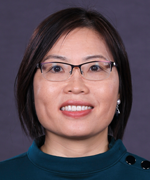
AMS FELLOWS
Jiwen Fan, Sonia Lasher-Trapp, and ASR Program Manager Shaima Nasiri were among the 24 individuals recognized as part of the 2023 class of AMS Fellows. AMS fellowship honors are awarded for “outstanding contributions to the atmospheric or related oceanic or hydrologic sciences or their applications during a substantial period of years.”
Fan is a laboratory fellow and an earth scientist at Pacific Northwest National Laboratory in Washington state. At AMS, she gave a core science keynote presentation about the impact of aerosols on deep convective clouds and severe weather.
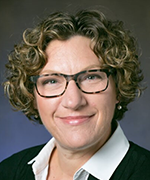
Fan has been a co-investigator on five ARM field campaigns, including ARM’s Green Ocean Amazon (GoAmazon2014/15) campaign, the recently completed TRacking Aerosol Convection interactions ExpeRiment (TRACER) in Texas, and the ongoing Surface Atmosphere Integrated Field Laboratory (SAIL) campaign in Colorado, among others. She previously served on ARM’s User Executive Committee and was a past recipient of a DOE Early Career Research Program grant.
Lasher-Trapp is a professor in the Department of Atmospheric Sciences at the University of Illinois Urbana-Champaign. She is leading a three-year ASR project combining data analyses and modeling from ARM’s 2018–2019 Cloud, Aerosol, and Complex Terrain Interactions (CACTI) campaign in Argentina to look at general trends of aerosol effects upon convective cold pools. At AMS, Lasher-Trapp gave an invited presentation on the effects of immersion-freezing ice-nucleating particles on CACTI thunderstorm simulations.
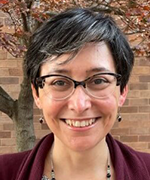
Lasher-Trapp is also a member of the ARM Science Board, an independent review board that ensures ARM is used to conduct the highest-quality science.
Nasiri is a program manager for DOE’s ASR program in Germantown, Maryland. She also currently co-leads several DOE initiatives focused on increasing diversity in climate and environmental sciences, including the Reaching a New Energy Sciences Workforce (RENEW) and Funding for Accelerated, Inclusive Research (FAIR) initiatives.
During AMS, Nasiri presented a poster that provided an overview of ASR, the relationship between ASR and ARM, and ASR-related funding opportunity announcements.
CARL-GUSTAF ROSSBY RESEARCH MEDAL
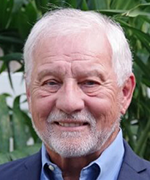
Bruce Albrecht, a professor emeritus in the atmospheric sciences department at the University of Miami’s Rosenstiel School, received the Carl-Gustaf Rossby Research Medal “for fundamental contributions to the measurement and understanding of boundary-layer clouds and the turbulent and microphysical processes controlling them.” The medal is awarded to individuals who have made outstanding contributions to the understanding of the structure or behavior of the atmosphere.
A pioneer in the study of marine clouds, Albrecht led the 1992 Atlantic Stratocumulus Transition Experiment (ASTEX) in the Azores, off the coast of Portugal. ASTEX demonstrated how important the Azores are to the atmospheric research community, as the islands are well suited for the measurement of low marine clouds and are heavily influenced by aerosols from across the globe.
More than 30 years after Albrecht led ASTEX, the Azores continue to serve as an important source of marine stratocumulus cloud data provided by ARM’s Eastern North Atlantic atmospheric observatory.
VERNER E. SUOMI TECHNOLOGY MEDAL
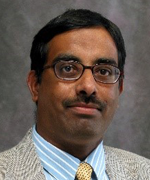
Venkatachalam (V.) Chandrasekar was awarded the Verner E. Suomi Technology Medal, a medal awarded to individuals who have made a highly significant technological achievement in the atmospheric or related oceanic and hydrologic sciences. Chandrasekar was selected for the award in recognition of his “leadership in developing techniques to observe precipitation processes using dual-polarization and spaceborne radar.”
Chandrasekar, a professor of electrical and computer engineering and a Fellow of the Cooperative Institute for Research in the Atmosphere at Colorado State University, is a co-investigator for ARM’s SAIL field campaign.
At AMS, Chandrasekar gave a talk on the synergy found between radar observations from SAIL and the concurrent NOAA-led Study of Precipitation, the Lower Atmosphere, and Surface for Hydrometeorology (SPLASH).
MONTHLY WEATHER REVIEW EDITOR’S AWARD
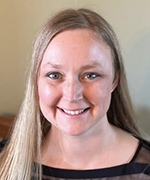
Rebecca Adams-Selin received the Monthly Weather Review Editor’s Award “for thorough, thoughtful, and constructive reviews of numerous manuscripts on convective storms.” The award is presented to individuals who provide outstanding service to the AMS Monthly Weather Review journal.
Adams-Selin, a senior manager scientist at Atmospheric and Environmental Research Inc. in Massachusetts, leads a current ASR project using ARM data from Oklahoma. The project team is examining how the characteristics of midlatitude mesoscale convective system stratiform precipitation regions are generated and modified by low-frequency gravity waves, line-end vorticity-induced wind flows, and large-scale environmental conditions.
See the full list of 2023 AMS awards and honors recipients.
2022 AGU Awards
At its December 2022 fall meeting in Chicago, Illinois, AGU recognized its newest group of award recipients.
The honorees included four researchers with recent ties to ARM and ASR.
AGU FELLOWS
Andrew Gettelman and Wei-Kuo Tao were among the 54 individuals recognized as part of the 2022 class of AGU Fellows. The honor is awarded to AGU members who “embody AGU’s values by fostering equity, integrity, diversity, and open science; by mentoring; through public engagement; and in their communications.”
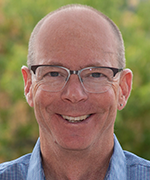
Since 2022, Gettelman has been an earth scientist at Pacific Northwest National Laboratory in Washington state. He received his AGU honor “for advancing our understanding of cold cloud physics in climate dynamics and the development of community Earth system models.” One of those models, the System for Integrated Modeling of the Atmosphere (SIMA), was the focus of Gettelman’s invited presentation at the AGU Fall Meeting.
While in his previous role at the National Center for Atmospheric Research in Boulder, Colorado, Gettelman participated in the Southern Ocean Clouds, Radiation, Aerosol Transport Experimental Study (SOCRATES). The large international multi-agency effort included collaboration with two ARM field campaigns in the region, the Macquarie Island Cloud and Radiation Experiment (MICRE) and Measurements of Aerosols, Radiation, and Clouds over the Southern Ocean (MARCUS).
Gettelman also served on the science team for ARM’s 2017–2018 Aerosol and Cloud Experiments in the Eastern North Atlantic (ACE-ENA) campaign. He previously was a member of ARM’s User Executive Committee and currently serves on the ARM Science Board.
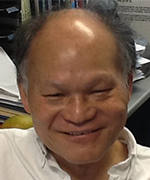
AGU recognized Tao, a research meteorologist at NASA’s Goddard Space Flight Center in Maryland, “for seminal and pioneering contributions to understanding clouds and precipitation using advanced numerical modeling and satellite observations.”
Tao has been a principal investigator for multiple ASR-funded projects. His latest project analyzed the processes that govern the sizes of convective cloud shields using data from ARM’s GoAmazon field campaign in Brazil and Southern Great Plains (SGP) atmospheric observatory in Oklahoma.
During the AGU Fall Meeting, Tao gave an invited presentation on the Goddard Cumulus Ensemble, a cloud-resolving model developed and improved at NASA’s Goddard Space Flight Center over the past three decades.
JAMES B. MACELWANE MEDAL
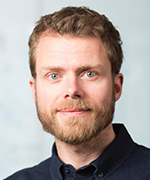
Pierre Gentine received the James B. Macelwane Medal for early career scientists who have made significant contributions to Earth and space science. Gentine was honored “for his fundamental research on land-atmosphere interactions and pioneering contributions to integrating machine learning concepts into climate modeling.”
Gentine is a professor of earth and environmental engineering at Columbia University in New York. He is on the ARM/ASR-funded team that is developing the science plan and initial research project for ARM’s upcoming deployment in Alabama.
Gentine, a DOE Early Career Research Program grant recipient, led a 2017–2019 campaign that explored land-atmosphere processes across multiple spatial scales at the SGP.
At the AGU Fall Meeting, Gentine gave an invited presentation that focused on community- and impact-driven science and the role that mentors and senior scientists play in driving change.
ASCENT AWARD
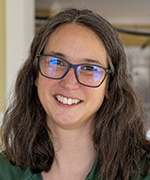
Delphine Farmer received the Atmospheric Sciences Ascent Award for midcareer scientists affiliated with AGU’s Atmospheric Sciences section or subsection. Farmer received the Ascent Award in acknowledgment of “her seminal contributions to our understanding of atmospheric chemistry both in and outdoors.”
An assistant professor in Colorado State University’s chemistry department, Farmer led two ASR projects that focused on black carbon deposition. The first project, on black carbon deposition over land surfaces (2016–2019), used SGP data. The second project, on black carbon deposition over the cryosphere (2019–2022), included ARM data gathered at Oliktok Point, Alaska.
Farmer’s invited AGU presentation described how she and her research team have used mass spectrometry and other analytical techniques to provide observational constraints on the emissions, evolution, and fate of atmospheric organic carbon.
See the full list of 2022 AGU section awardees and named lecturers.
Nominate Your Peers
Nominations for AGU 2023 section awards and union honors are open until April 12. The 2023 AGU Fall Meeting is scheduled for December 11 to 15 in San Francisco, California.
Nominations for AMS 2024 awards and honors are open until May 1. The 2024 AMS Annual Meeting will take place from January 28 to February 1 in Baltimore, Maryland.
Keep up with the Atmospheric Observer
Updates on ARM news, events, and opportunities delivered to your inbox
ARM User Profile
ARM welcomes users from all institutions and nations. A free ARM user account is needed to access ARM data.


















